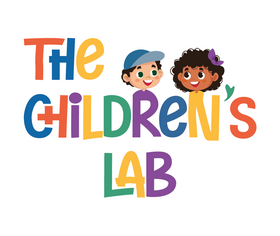Why Choose Our Mini Sensory Bins?
Our Mini Sensory Bins are more than just toys; they are brain development toys that encourage independent exploration. Each bin is carefully curated with a variety of textures, colors, and themes, allowing children to engage in sensory bin activities for preschoolers that promote cognitive growth and fine motor skills.
Key Benefits of Our Sensory Bins:
- Enhances Cognitive Development – Sensory play stimulates problem-solving skills and critical thinking.
- Encourages Creativity & Imagination – Open-ended play allows children to create their own stories and adventures.
- Supports Fine Motor Skills – Scooping, pouring, and sorting help strengthen little fingers and hands.
- Calms and Regulates Emotions – Tactile play has a soothing effect, making it perfect for self-regulation.
- Perfect for At-Home & On-the-Go Play – Compact and easy to store, our bins are great for playtime anywhere.
What’s Inside Our Mini Sensory Bins?
Each bin is carefully crafted to provide a unique sensory experience. Depending on the theme, you may find:
- Natural elements such as sand, pebbles, or water beads (perfect for nature sensory bins).
- Small, safe manipulatives like scoops, figurines, and textured objects to enhance exploration.
- A variety of colors and materials that engage touch, sight, and even sound!
These elements make our Mini Sensory Bins an ideal tool for sensory play activities for preschoolers, helping them discover the world through their senses.
The Importance of Sensory Play in Early Childhood Development
Children learn best through play, and sensory play is one of the most effective ways to support their growth. Our Mini Sensory Bins encourage little learners to explore different textures, develop their fine motor skills, and boost their problem-solving abilities. The hands-on experience also aids in language development, as kids describe what they see, feel, and do.
FAQs
1. What are sensory play activities?
Sensory play activities engage a child’s senses—touch, sight, sound, smell, and even taste—through hands-on exploration. Examples include playing with sand, water beads, or themed sensory bin activities for preschoolers.
2. What are five benefits of sensory play?
- Enhances cognitive development.
- Improves fine motor skills.
- Encourages creativity and problem-solving.
- Aids emotional regulation and focus.
- Supports language and communication skills.
3. Why is sensory play important for development?
Sensory play helps children make sense of the world, build nerve connections in the brain, and develop essential life skills such as problem-solving, social interaction, and emotional regulation.
4. What age to start sensory play?
Sensory play can start as early as infancy with supervised activities like touching soft fabrics. Sensory play activities for preschoolers are especially beneficial for kids aged 1-7.
5. What are the activities in the sensory bin?
Sensory bin activities include scooping, sorting, pouring, and imaginative play. Kids can dig through materials, find hidden objects, match colors, and engage in storytelling.


